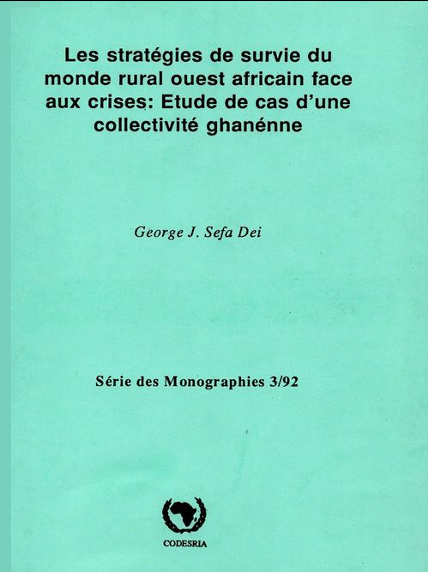Les stratégies de survie du monde rural ouest-africain face aux crises : étude de cas d’une collectivité ghanéenne
Mots-clés :
Difficultés, survie, zones rurales d'Afrique de l'Ouest, communauté ghanéenneSynopsis
Dakar, CODESRIA, 1992, 159 p, ISSN 0850-2633
Pour cette étude sur le Ghana notre intention première était de nous intéresser à la constance et aux modifications apportées aux modes d'alimentation et de subsistance d'une communauté rurale de la zone forestière. Notre méthode consistait à rassembler des données sur l'agriculture traditionnelle et sur d'autres activités économiques liées à l'exploitation des ressources forestières (dont la chasse), ainsi qu'à la participation des populations locales à l'économie de rente et/ou au travail salarié. Pour l'intérêt que nous portons à l'économie traditionnelle villageoise, nous nous sommes proposés également de mener une étude quantitative sur les modes d'alimentation, en passant sur la ration calorique et la pertinence nutritionnelle du régime alimentaire de quelques ménages.
Téléchargements






